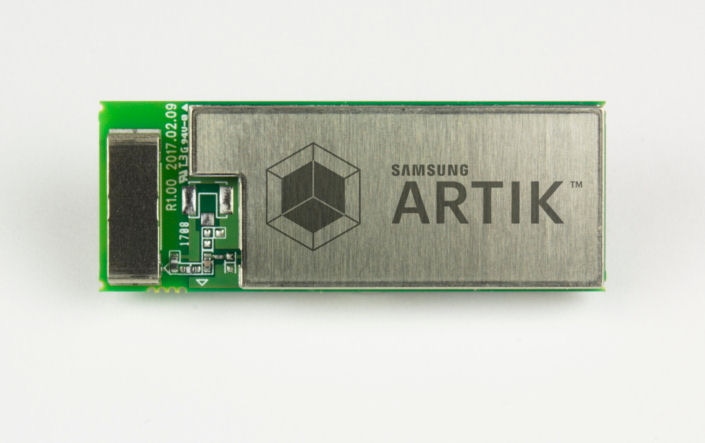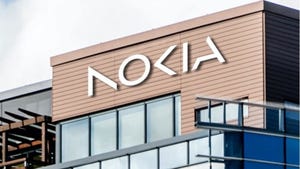At its recent developer conference Samsung was keen to talk up its Artik IoT platform and insisted unfashionable OS Tizen has a significant part to play.
May 17, 2017

At its recent developer conference Samsung was keen to talk up its Artik IoT platform and insisted unfashionable OS Tizen has a significant part to play.
ARTIK – Samsung’s IoT platform – was launched two years ago but we haven’t heard much about it since. Now the company seems to be trying to reboot the concept via the time-honoured ‘new and improved’ marketing method. Among the inevitable claims of new end-to-end capabilities is a new module (pictured), which is effectively a mini computer complete with processor, memory and connectivity, that brings a lot of this new-and-improved goodness to IoT devices.
“A smart, powerful IoT platform is key to fostering an interoperable, and most importantly, secure ecosystem,” said James Stansberry, U.S. Head of Artik at Samsung Electronics. “That is why we developed the Samsung Artik Smart IoT platform from the ground up with end-to-end security, and why we continue to integrate new security enhancements across hardware, software, cloud and communications.
“Leveraging Samsung Artik is a value add for our customers,” said Youngsoo Do, SVP of the Digital Control Group at Samsung Electronics. “Samsung Artik is instrumental to Samsung in building secure IoT products, and getting to market faster. The ability to connect to other smart devices also enables new use cases, and is helping us realize our vision of making all Samsung products IoT-enabled.”
Also at the developer conference, which was themed ‘Ready To Connect, Get Involved!’ for some reason, Samsung extolled the virtues of the Tizen 4.0 platform. For those who have understandably forgotten Tizen was Samsung’s attempt to create an alternative Linux-based mobile OS that it installed on some phones a few years ago in a bid to make itself less dependent on Android. The plan was foiled when it became clear that there was no reason for anyone to buy a Tizen phone instead of an Android one.
So Samsung decided to repurpose the platform as the OS for other smart devices categories not currently dominated by Android, including smart TVs and smart watches. And now Tizen 4.0 brings a whole bunch of broader IoT device capability, according to Samsung, as illustrated by the obligatory supercilious corporate video below.
“Since launching, Tizen has become the OS for nearly all of Samsung’s products, and with its record of sales growth, proven itself as the most successful Linux-based embedded OS in the world,” said Hyogun Lee, EVP of the Visual Display Business at Samsung and Chair of the Tizen Technical Steering Group. “Among open collaborations, and as we enter the IoT era, we expect Tizen will open new opportunities for the future of IoT.”
Lastly Samsung says it has already sold 5 million units of the new Galaxy S8 flagship smartphone despite it only having been available to buy globally for less than a month. It seems to be on course to sell 20 million in this quarter and possibly 60 million by the end of the year. If that happens it will have sold more than the most popular models of 2016.
About the Author(s)
You May Also Like








.png?width=300&auto=webp&quality=80&disable=upscale)


_1.jpg?width=300&auto=webp&quality=80&disable=upscale)


.png?width=800&auto=webp&quality=80&disable=upscale)